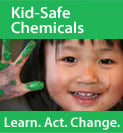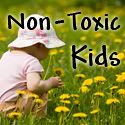 Ahhh, Spring has Sprung ! And with Spring, comes fruits and vegetables.... EVERYWHERE !!
Ahhh, Spring has Sprung ! And with Spring, comes fruits and vegetables.... EVERYWHERE !!
With the availability of many gorgeous fruits and vegetables, a lot of us start looking to increase our daily intake of these wonderful natural products. Not just because they taste so good, but because we know they are good for us and most are low in fat and calories.
But, there's "the other side" of the story to these beautiful creations. And that being that usually all fruits and vegetables are treated with pesticides and some of them have a very high level of toxins, which can be dangerous to our health? Yes, there are also toxins in the cleaners we use, the air we breath, but today I just thought I'd focus on fruits and vegetables.
Some of them we can eat in large quantities and be happy about it, but some of them it is better to avoid eating non-organic because they can do more harm than good for our health.
Have in mind that organic produce doesn’t mean pesticide free. Organically grown fruits and vegetables are grown on better soils and have less pesticides level. Well, and these pesticides are less dangerous to our health, but they are still pesticides, maybe only better quality.
So as you can see, it is very important to know which fruits and vegetables are less desirable, (less beneficial to our overall health). If peaches, strawberries, cherries contain a very high level of pesticides, we have to think twice before buying them non-organic. Would you like to add more dangerous toxins to your system? I don’t. There are always other choices: you can buy organic only a smaller amount (if the price is high), you can buy local (if you know that the farm is small and they care about their produce), or you don’t buy at all.
So, to help you to remember why not all fruits and veggies are equal, here is a list of the “dirtiest” and the “cleanest” fruits and vegetables for 2009 based on an
Environmental Working Group Survey.
In 2009 these fruits and vegetables you should buy organic:
1. Peaches 100
2. Apples 93
3. Bell Pepper- 83
4. Celery - 82
5. Nectarines - 81
6. Strawberries - 80
7. Cherries - 73
8. Kale - 69
9. Lettuce - 67
10. Grapes - Imported from outside U.S. - 66
11. Carrot - 63
12. Pear - 63
This is a list of fruits and vegetables you don’t have to buy organic:
Onion - 1
Avocado - 1
Sweet corn - 2
Pine Apple - 7
Mango - 9
Asparagus - 10
Sweet peas - 10
Kiwi - 13
Cabbage - 17
Eggplant - 20
Papaya - 20
Watermelon - 26
Broccoli - 28
Tomato - 29
Sweet Potato - 29
Grapefruit - 29
Honeydew Melon - 30
I first learned about this subject from reading my friend, Irina Wardes' blog. (Women’s Holistic Health, Nutrition and Relationship Expert). She graciously granted me permission to use portions of her blog post, so I could pass this information along to others like you. Please go to her wonderful
website and blog for tons of more great health information like this!
 Ahhh, Spring has Sprung ! And with Spring, comes fruits and vegetables.... EVERYWHERE !!
Ahhh, Spring has Sprung ! And with Spring, comes fruits and vegetables.... EVERYWHERE !!
























